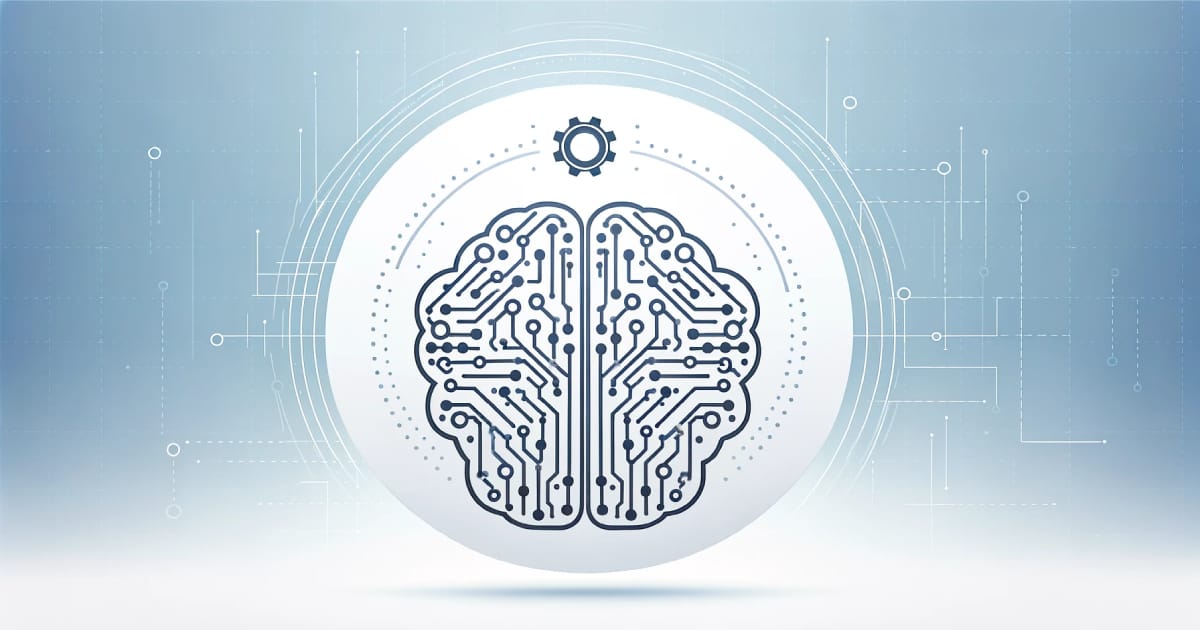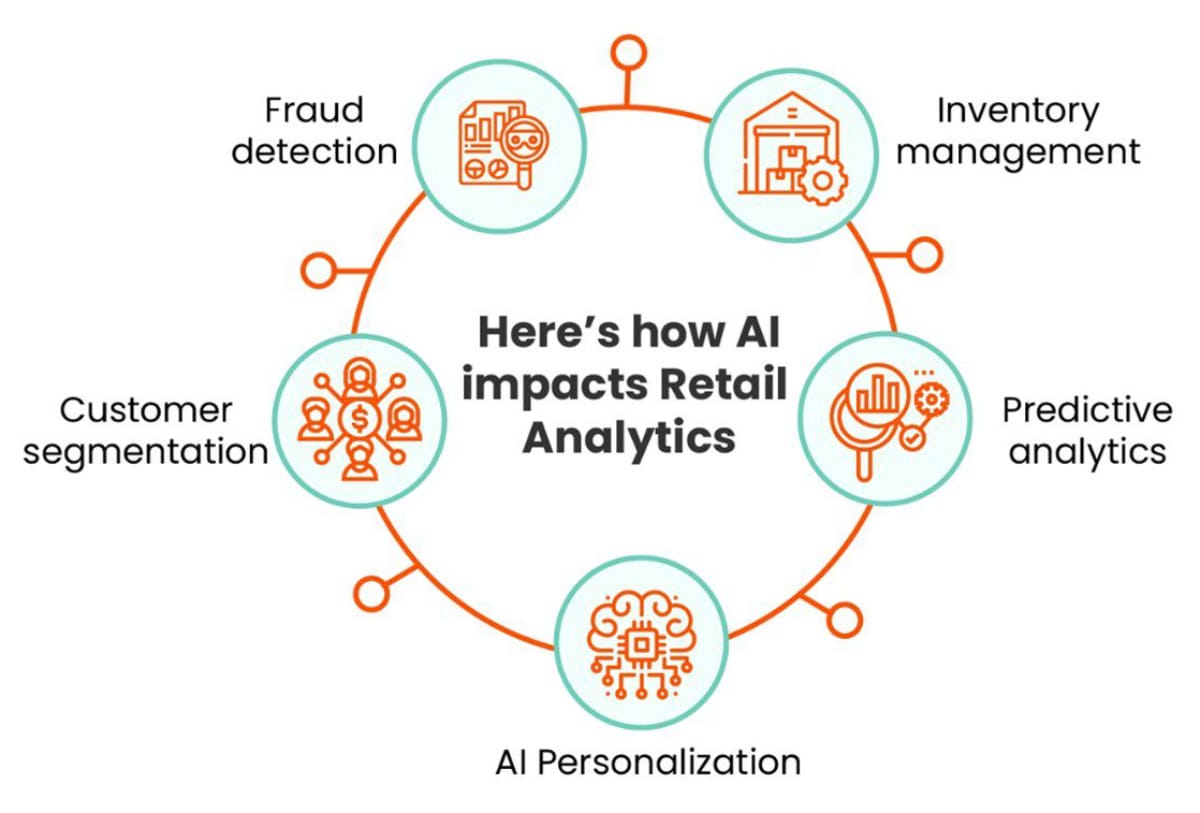How AI Can Increase Productivity by 80%

Artificial Intelligence (AI) is not just a popular buzzword. It is a key driving force behind new innovations. Across many industries, businesses are using AI technologies to make their operations more efficient, improve decision-making, and increase overall productivity. This article explains how businesses can use AI to not only keep up with competitors, but also set new standards for operational efficiency.
At its core, AI involves using computer systems that can mimic human intelligence processes like learning from patterns and experiences, understanding complex information, making logical decisions, and solving problems. For businesses, this means the ability to handle and process large amounts of data precisely, automate routine tasks, and provide better, more personalized experiences to customers. Integrating AI into business strategies is not only changing traditional methods, but also creating entirely new kinds of businesses that were not possible before.
After reading this article, you will better understand the specific ways AI can improve various aspects of business productivity and why it is becoming an essential tool for businesses to have.
Basics of AI in Business

To fully appreciate how AI can enhance business productivity, it's essential to start with a clear understanding of what AI is and the types of AI technologies that are most relevant to the business sector.
What is Artificial Intelligence?
Artificial Intelligence refers to a branch of computer science that aims to create systems capable of performing tasks that would normally require human intelligence. These tasks include learning from experiences, recognizing patterns, solving complex problems, and making decisions. AI systems are powered by algorithms and data, and they improve over time through processes known as machine learning and deep learning.
Types of AI Technologies in Business
Several AI technologies have proven particularly useful in business contexts:
- Machine Learning (ML): This involves algorithms that learn from and make predictions based on data. Businesses use ML to uncover trends and insights that help in strategic planning and operational efficiency.
- Natural Language Processing (NLP): AI that understands and generates human language can automate and improve tasks like customer support, document analysis, and more.
- Robotic Process Automation (RPA): This technology uses bots to automate routine and repetitive tasks, such as data entry and invoice processing, which are time-consuming when done manually.
Examples of AI Applications in Business
- Customer Insights: AI analyzes customer data to provide personalized marketing strategies and product recommendations, enhancing the customer experience and increasing sales.
- Fraud Detection: Financial institutions employ AI to detect unusual patterns and prevent fraud before it occurs, saving millions in potential losses.
- Operational Automation: AI automates inventory management and logistics, which reduces errors, lowers costs, and improves service delivery.
By integrating AI into their operations, businesses can not only automate processes but also gain deeper insights into their data, enabling smarter decisions that drive efficiency and growth.
Improving Decision-Making

One of the most significant advantages of AI in business is its ability to enhance decision-making processes. AI systems process vast amounts of data much faster and with more accuracy than human beings, providing businesses with critical insights that are free of human error and bias.
AI and Data Analysis
AI excels in analyzing large datasets to identify patterns, trends, and relationships that might not be obvious to human analysts. This capability allows businesses to:
- Predict Consumer Behavior: By understanding past purchasing patterns, AI can predict future buying behaviors, helping companies stock products more efficiently and market more effectively.
- Optimize Pricing Strategies: AI analyzes market conditions and competitor pricing to recommend the best pricing strategies, maximizing profit without sacrificing competitive edge.
- Enhance Resource Allocation: AI can forecast demand for services and products, allowing businesses to allocate resources more effectively, reducing waste and increasing satisfaction.
Case Studies of AI in Decision-Making
- Amazon: Uses AI to optimize its inventory and pricing strategy, often changing prices millions of times a day based on an analysis of market conditions.
- American Express: Employs machine learning to analyze transaction data to prevent fraud, identifying patterns that indicate fraudulent activities and alerting customers in real-time.

These examples show how AI can transform decision-making processes, making them more data-driven, efficient, and impactful.
Automating Routine Tasks

A key advantage of AI in the business sector is its ability to automate routine and repetitive tasks. This not only saves time but also allows employees to focus on more complex and value-adding activities. Automation through AI enhances productivity by reducing errors and speeding up processes.
Understanding Automation via AI
Automation involves the use of AI systems to perform tasks without human intervention. These tasks are typically rule-based and repetitive, making them ideal candidates for automation.
- Data Entry and Processing: AI can automate the entry and processing of data across systems, reducing the likelihood of errors and freeing up time for staff to tackle more demanding problems.
- Customer Inquiries: AI-powered chatbots and virtual assistants can handle basic customer service tasks, such as answering FAQs and processing orders, around the clock.
Examples of Routine Tasks AI Can Automate
- Scheduling and Calendar Management: AI tools can automatically manage appointments and schedules, sending reminders and optimizing meetings based on the participants' availability.
- Invoice Processing: AI can streamline the invoice management process by extracting data from invoices, matching them with purchase orders, and processing payments without human oversight.
Case Studies Showcasing Efficiency Improvements
- IBM: Uses AI to automate its IT services, which includes diagnosing and resolving system issues automatically, significantly reducing downtime and improving service efficiency.
- Walmart: Employs AI-driven robots to scan shelves for inventory needs, price discrepancies, and missing labels, automating routine monitoring tasks that were previously done by employees.
These examples illustrate how AI can take over routine tasks, allowing businesses to optimize their workforce and reduce operational costs.
Enhancing Customer Experience

AI significantly improves the customer experience by personalizing interactions and making services more accessible. Enhanced customer experiences not only satisfy customers but also lead to higher engagement and increased loyalty.
Personalizing Customer Interactions
AI’s ability to analyze data from various sources enables businesses to offer personalized experiences to customers, which are tailored to their preferences and behaviors.
- Personalized Recommendations: E-commerce platforms use AI to analyze browsing and purchase history to suggest products that customers are more likely to buy.
- Customized Marketing Messages: AI helps businesses tailor their marketing efforts based on customer demographics, past interactions, and preferences, increasing the effectiveness of advertising campaigns.
AI in Customer Service
AI-powered tools are transforming customer service by providing instant responses to customer inquiries and resolving issues quickly.
- Chatbots: These AI systems can manage multiple customer interactions simultaneously, providing answers to common questions and solving standard issues without human intervention.
- Voice Assistants: Used in various service sectors, these AI tools can understand and respond to voice commands, allowing customers to interact in a more natural and intuitive way.
Benefits of Improved Customer Experience
- Increased Satisfaction: Personalized experiences make customers feel valued, leading to increased satisfaction and loyalty.
- Efficiency Gains: AI-driven interactions reduce the need for human customer service agents, allowing them to focus on more complex customer needs.
Companies like Netflix and Spotify excel in using AI to customize content recommendations, greatly enhancing user satisfaction and retention.
Optimizing Logistics and Operations

AI plays a crucial role in optimizing business logistics and operational processes, making them more efficient and reducing costs. By applying AI to these areas, companies can better manage their resources, forecast needs, and streamline their supply chains.
AI's Impact on Supply Chain Management
AI enhances supply chain management by improving accuracy and timing throughout the logistics chain.
- Demand Forecasting: AI algorithms predict future product demand based on historical data, market trends, and seasonal fluctuations. This allows businesses to adjust their inventory levels appropriately, avoiding both overstock and stockouts.
- Route Optimization: AI helps logistics companies find the most efficient routes for delivery vehicles. This not only saves time but also reduces fuel consumption and costs.
- Supplier Selection and Management: AI systems can analyze supplier performance across multiple metrics, helping businesses choose and manage suppliers more effectively.
Use of AI for Optimizing Inventory and Deliveries
- Inventory Management: AI tools provide real-time insights into inventory levels, predict restocking needs, and can automate ordering processes to maintain optimal stock levels.
- Automated Warehousing: Robotics and AI systems work together in warehousing operations to pick, sort, and store goods more efficiently than human workers.
Real-world Examples of Logistic Improvements Through AI
- Amazon: Utilizes sophisticated AI in its fulfillment centers to optimize the placement and retrieval of items, reducing processing times and improving customer satisfaction.
- DHL: Employs AI to optimize delivery schedules and routes, enhancing the efficiency of its logistics operations and reducing operational costs.
These improvements not only streamline operations but also enhance the agility of businesses, allowing them to respond more effectively to market changes and customer needs.
Challenges and Considerations

While the benefits of AI in business are substantial, implementing such technologies comes with its set of challenges and considerations.
Potential Challenges in AI Implementation
- Cost: Initial investments in AI technology can be high, especially for small to medium enterprises (SMEs). This includes the cost of technology, training, and potentially restructuring business processes.
- Skills Gap: There is often a skills gap that must be addressed, as employees need to understand and manage AI systems effectively.
- Integration Issues: Integrating AI with existing IT systems can be complex and require significant modifications or upgrades.
Ethical Considerations and Responsible AI Use
- Data Privacy: Businesses must manage how they collect, store, and use data to avoid breaches of privacy and ensure they comply with data protection regulations.
- Bias in AI: AI systems can perpetuate or even exacerbate existing biases if they are trained on biased data sets. Businesses need to continuously monitor and update their AI systems to prevent discriminatory practices.
- Transparency and Accountability: It is important for businesses to maintain transparency in how AI decisions are made and to be accountable for the outcomes of those decisions.
These challenges require careful consideration and management to ensure that the benefits of AI are realized without unintended consequences.
Final Thoughts
Integrating AI into business operations offers a significant opportunity to boost productivity. From automating tasks to optimizing logistics and improving decision-making, AI can transform traditional business practices and models.
Adopting AI is becoming essential for companies to stay competitive. With proper planning, AI can enhance efficiency, improve customer satisfaction, and drive profitability, while opening doors for innovation and new growth opportunities. Though challenges exist, embracing AI is critical for businesses looking to stay ahead.
Key Takeaways
| Section | Key Takeaways |
|---|---|
| Improving Decision Making | AI helps businesses make better decisions by analyzing large data sets. Examples: Amazon optimizes prices, American Express detects fraud. |
| Automating Routine Tasks | AI automates simple tasks, allowing employees to focus on more important work. Examples: IBM automates IT services, Walmart automates inventory checks. |
| Enhancing Customer Experience | AI personalizes customer interactions and automates responses, leading to happier customers and more efficient operations. |
| Optimizing Logistics and Operations | AI improves management of supplies and delivery routes. Examples: Amazon optimizes warehousing, DHL optimizes deliveries. |
| Challenges and Considerations | Challenges include costs, skills needed, and integrating AI with existing systems. It's important to handle data carefully and avoid biases in AI. |





